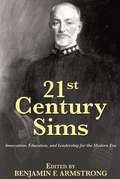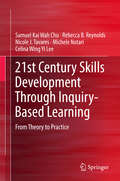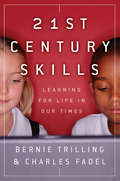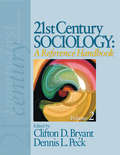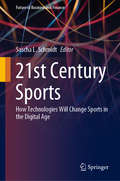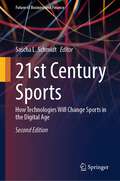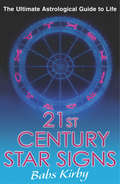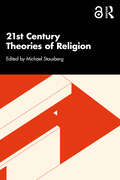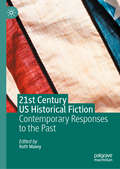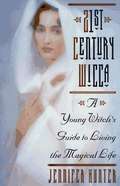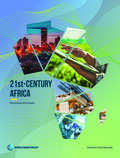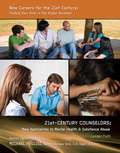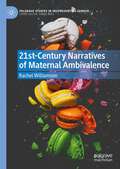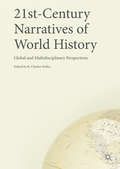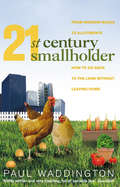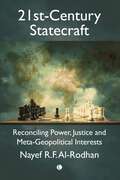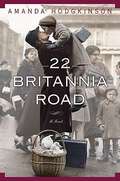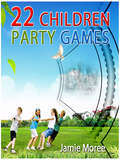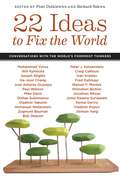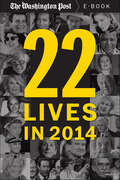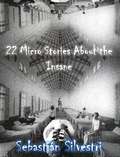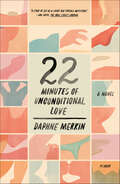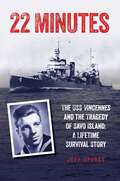- Table View
- List View
21st Century Sims
by Edited by Benjamin F. ArmstrongFor more than two decades at the beginning of the 20th century William S. Sims was at the forefront of naval affairs. From the revolution in naval gunnery that he led as a junior officer, to his advocacy for the Dreadnaught style all-big-gun battleship, to his development of torpedo boat and destroyer operations, he was a central figure in helping to prepare the U. S. Navy for World War I. During the war he served as the senior naval commander in Europe and was instrumental in the establishment of the convoy system that won the Battle of the Atlantic. Following the war his leadership as President of the Naval War College established the foundations of the creative and innovative Navy that would develop the operating concepts for submarines and aircraft carriers which would lead to success in World War II. Despite his dramatic impact on the U. S. Navy in the first half of the 20th century, Sims is a relatively unknown figure today. Overshadowed in our memory by the World War II generation of strategic Admirals, like Chester Nimitz and Raymond Spruance, he receives little attention from historians or professional naval officers. Despite the fact that he won a Pulitzer Prize for history, hardly anyone reads the books or articles he left as his legacy. This collection of six essays written by Sims illustrates why his thinking and leadership are relevant to the challenges faced in the 21st century. From the perils of military conservatism, to the responsibilities of the professional officer, to military downsizing and reform, he helped lay the foundations of the modern Navy. Armstrong’s introductions and analysis of these essays links them directly to the issues of innovation, professional education, and leadership that are as important at the start of this century as they were at the start of the last.
21st Century Skills Development Through Inquiry-Based Learning: From Theory to Practice
by Samuel Kai Wah Chu Rebecca B. Reynolds Nicole J. Tavares Michele Notari Celina Wing Yi LeeDr Chu, Associate Professor, is Head of Division of Information & Technology Studies and Deputy Director of Centre for Information Technology in Education at the Faculty of Education, The University of Hong Kong. He has over 250 publications in the areas of IT in education, information and library science, school librarianship, academic librarianship and knowledge management. His over 40 projects have amounted to more than US$ 6 million in grant funding. He has received his Faculty's Outstanding Researcher Award and Knowledge Exchange Award. Dr Reynolds is Assistant Professor in the School of Communication & Information at Rutgers University, and faculty affiliate of Center for International Scholarship on School Librarianship. Her research addresses the development of e-learning systems for formal and informal learning in a broad range of affinity spaces. Publishing in the fields of information science, educational technology and the learning sciences, she has grant funding from the Institute for Museum and Library Services, and has received two faculty department awards. Miss Tavares is Senior Lecturer at the Faculty of Education of The University of Hong Kong. She has published in the areas of 21st century skills learning, using educational technologies in promoting reading and writing, and social media in teacher professional development. She has received many awards in her teaching career, including her Faculty's and University's Outstanding Teaching Award in 2016. Prof. Notari is a Professor at the University of Teacher Education in Bern, Switzerland and an honorary assistant professor at the Faculty of Education, The University of Hong Kong. He has published books and journal articles in the field of information technologies in education. Ms Lee is a secondary school English teacher in Hong Kong and a trained IB English Language and Literature teacher. She has published in the areas of 21st century skills learning, IT in education, and inquiry project based learning.
21st Century Skills: Learning for Life in Our Times
by Charles Fadel Bernie TrillingThe new building blocks for learning in a complex worldThis important resource introduces a framework for 21st Century learning that maps out the skills needed to survive and thrive in a complex and connected world. 21st Century content includes the basic core subjects of reading, writing, and arithmetic-but also emphasizes global awareness, financial/economic literacy, and health issues. The skills fall into three categories: learning and innovations skills; digital literacy skills; and life and career skills. This book is filled with vignettes, international examples, and classroom samples that help illustrate the framework and provide an exciting view of twenty-first century teaching and learning.Explores the three main categories of 21st Century Skills: learning and innovations skills; digital literacy skills; and life and career skills Addresses timely issues such as the rapid advance of technology and increased economic competitionBased on a framework developed by the Partnership for 21st Century Skills (P21)The book contains a DVD with video clips of classroom teaching. For more information on the book visit www.21stcenturyskillsbook.com.
21st Century Sociology: A Reference Handbook
by Clifton D. Bryant Dr Dennis L. Peck21st Century Sociology: A Reference Handbook provides a concise forum through which the vast array of knowledge accumulated, particularly during the past three decades, can be organized into a single definitive resource. The two volumes of this Reference Handbook focus on the corpus of knowledge garnered in traditional areas of sociological inquiry, as well as document the general orientation of the newer and currently emerging areas of sociological inquiry.
21st Century Sports: How Technologies Will Change Sports in the Digital Age (Future of Business and Finance)
by Sascha L. SchmidtThis book outlines the effects that technology-induced change will have on sport within the next five to ten years, and provides food for thought concerning what lies further ahead. Presented as a collection of essays, the authors are leading academics from renowned institutions such as Massachusetts Institute of Technology, Queensland University of Technology, and the University of Cambridge, and practitioners with extensive technological expertise. In their essays, the authors examine the impacts of emerging technologies like artificial intelligence, the Internet of Things, and robotics on sports and assess how they will change sport itself, consumer behavior, and existing business models. The book will help athletes, entrepreneurs, and innovators working in the sports industry to spot trendsetting technologies, gain deeper insights into how they will affect their activities, and identify the most effective responses to stay ahead of the competition both on and off the pitch.
21st Century Sports: How Technologies Will Change Sports in the Digital Age (Future of Business and Finance)
by Sascha L. SchmidtDiscover the exciting future of sports in the digital age with "21st Century Sports: How Technologies Will Change Sports in the Digital Age." This thought-provoking book, now in its second edition, delves into the transformative power of technology on the world of sports within the next five to ten years and beyond. Written by esteemed academics from prestigious institutions like the Massachusetts Institute of Technology, Queensland University of Technology, and the University of Cambridge, alongside seasoned practitioners with extensive technological expertise, this collection of essays offers profound insights. Through their comprehensive analysis, the authors explore the profound impacts of emerging technologies such as artificial intelligence, the Internet of Things, blockchain, web3 and robotics on sports. Uncover how these technologies will revolutionize not only the nature of sports itself but also consumer behavior and existing business models. Athletes, entrepreneurs, and innovators working in the sports and other industries will find invaluable guidance to identify trendsetting technologies, gain deeper insights into their implications, and stay ahead of the competition, both on and off the field. In this new edition, a special focus is given to technology convergence, featuring chapters on the future of fandom, sports in the third connected age and in new digital worlds like the Metaverse. This book is your gateway to the dynamic world where technology and sports intersect, offering a compelling vision of what lies ahead.
21st Century Star Signs: The Ultimate Astrological Guide to Life
by Babs KirbyEver wondered how best to win round a stubborn colleague, or why it is you can never settle for just one partner? Babs Kirby's 21st Century Star Signs will tell you everything you ever wanted to know about you, your lover, father, daughter , boss and even today's A-list celebrities, in this, the most modern, in-depth astrological portrait for the 21st century. Taking up where the massive bestseller Linda Goodman's Sun Signs left off, Babs takes a completely contemporary, zeitgeisty approach that's compassionate, intelligent and, above all, revealing.21st Century Star Signs reflects and embraces today's sensibilities and values looking at the way we function in sexual relationships - whether they're heterosexual, metrosexual, gay (or otherwise-), in work - with all it's ever-changing technologies and opportunities and in our homelife in which single parents, serial monogomists and stay-at-home fathers are now the norm. A chapter is dedicated to each sign, giving an in-depth portrait which will reveal every aspect of the sign including both positive and negative aspects, bringing hidden motivations, sexual proclivities and characteristics to the fore and showing how different signs will thrive under certain circumstance, how to nurture one's positive influences and how best to recognise, relate to and deal with other signs -with all their strengths and weaknesses.
21st Century Theories of Religion
by Michael StausbergWhat is religion and how does it originate? What are its functions and how does it work? These are some of the key questions addressed by theories of religion. Far from being a past concern, a series of new answers have been proposed since the beginning of our present millennium by evolutionary biologists and psychologists, philosophers, sociologists, and scholars of religion.In 21st Century Theories of Religion, Michael Stausberg is joined by leading scholars from Europe and North America to present and critically discuss fifteen contemporary theories. Contributions introduce the theoreticians, unpack their arguments, review their reception, and engage in critical debates. The volume provides a cutting-edge point of entry into a key conversation that no student and scholar of religion/s can afford to ignore.Chapter 1 of this book is freely available as a downloadable Open Access PDF at http://www.taylorfrancis.com under a Creative Commons Attribution-Non Commercial-No Derivatives (CC BY-NC-ND) 4.0 license.Chapter 3 of this book is freely available as a downloadable Open Access PDF at http://www.taylorfrancis.com under a Creative Commons Attribution-ShareAlike (CC BY-SA) 4.0 license.
21st Century US Historical Fiction: Contemporary Responses to the Past
by Ruth MaxeyThis new collection examines important US historical fiction published since 2000. Exploring historical novels by established American writers such as Philip Roth, Joyce Carol Oates, E.L. Doctorow, Chang-rae Lee, James McBride, Susan Choi, and George Saunders, the book also includes chapters on first-time novelists. Individual essays in 21st Century US Historical Fiction: Contemporary Responses to the Past tackle prominent and provocative new novels, for example, recent Pulitzer Prize-winning fiction by Anthony Doerr, Viet Thanh Nguyen and Colson Whitehead. Interrogating such key themes as war, race, sexuality, trauma and childhood; notions of genre and periodization; and recent theorizations of historical fiction, scholars from the United States, Canada, Britain and Ireland analyze an emerging canon of contemporary historical fiction by an ethno-racially diverse range of major American writers.
21st Century Wicca: A Young Witch's Guide to Living the Magical Life
by Jennifer HunterThis eye-opening, by a witch with a refreshingly modern attitude toward the ancent intricacies of the Craft, answers common questions about Wicca. Whether you have read a dozen books on witchcraft or are completely new to the subject, you will find here a trove of unique and useful information - from the basics of Wiccan practice to lessons in the practicalities of magic, to the final section, which addresses the complexities of a life in which the magical and mundane are intertwined. The text is highlighted with quotes from practicing Wiccans and Pagans who tell of the magic in their lives. Also featured are exercises to teach grounding and empowerment techniques. By developing their own inherent magical abilities, readers will learn more about themselves - for the ultimate Mystery is that which lies within.
21st-Century Africa: Governance and Growth
by Chorching GohWill the 21st century witness Africa’s major push toward catching up with other world regions? Or will the continent continue to underperform its peers? A flagship report published by the World Bank in 2000 asked, Can Africa Claim the 21st Century? It provided a blueprint for Africa to navigate in the uncertain future. A quarter century later, Africa’s progress reveals some advancements, yet efforts to overcome pivotal challenges identified at the century’s outset have fallen short. The agenda to mitigate conflicts, invest in people, bolster economic competitiveness, and reduce dependence on external financing remains unfinished. What will it take to reshape Africa’s trajectory, not only for the few countries that have made notable advancements but also for current and future generations across the continent? The goal of fostering inclusive green growth remains, yet its attainment is increasingly daunting. Based on labor-intensive, polluting industrialization that once brought wealth elsewhere, the growth model is unlikely to succeed as automation expands, trade patterns shift, and climate pressures mount. Amid rapid population growth, achieving social and economic inclusion becomes more arduous. Moreover, sustainability confronts threats not solely from pollution and resource overextraction but also from the exacerbating impacts of the changing climate. Nevertheless, promising instances and hopeful examples in numerous African nations demonstrate that no inherent barriers are preventing Africa from accelerating development and narrowing the gaps with other world regions. To achieve this, countries must intensify efforts to address three crucial enablers of development: 1. Governance with accountable leadership and a competent and committed state. Without this, progress on any aspect of development is unattainable. 2. Young Africans equipped with skills, technology, and access to quality health care, enabling them to engage in society and the economy. 3. Robust, well-functioning market systems that cultivate growth, foster opportunities, and generate productive employment. This sequel report, 21st-Century Africa, analyzes past achievements, enduring obstacles, and potential policy alternatives and outlines strategies for governments to enhance support for sustainable growth. The report delves into ways the continent can empower its expansive, young labor force with the requisite skills and resources for a modern, productive economy. It also explores how trade in goods and services can distribute economic gains across what historically has been the most fragmented world region.
21st-Century Counselors: New Approaches to Mental Health & Substance Abuse
by Camden FlathMany people around the country deal with problems of mental illness and substance abuse, as well as trouble with finding work, communicating with family members, or being bullied at school. The demand for counselors and psychologists who can give support to individuals dealing with these issues and their families is on the rise. The young adults of today will be the job force of tomorrow, so choosing a career that will best fit with the needs of the changing world will be important to job satisfaction and a successful life. With the vast array of career and job options, it will also be important for young adults to understand which work will be the best match for their interests, talents, goals, and personality types. Certain careers are expected to gain importance within the early decades of the twenty-first century. According to the United States Bureau of Labor Statistics, employment in counseling is expected to grow faster than the average rate for all occupations. As attitudes change about mental health, addiction, and emotional well-being, particularly in the level of open discussion surrounding these topics, more people are turning to counselors and psychologists for assistance. Are you ready to help?
21st-Century Narratives of Maternal Ambivalence (Palgrave Studies in (Re)Presenting Gender)
by Rachel WilliamsonMotherhood has long been depicted in reductive or limited terms. At once valorized and configured as the ultimate end-goal for socially condoned femininity, maternity is also highly mediated and scrutinized. This has resulted in a representational tradition that persists in imagining maternal subjects in rigid binary terms, pitting good mothers against bad. Largely in response to this repressive schema, recent years have marked the emergence of a diverse range of visual and literary texts about motherhood. While such texts vary in style, genre and form, this book argues that they are unified in their efforts to publicize embodied maternal experience and foreground maternal ambivalence, a concept that is best understood as a mother’s capacity to simultaneously love and hate her child. Although maternal ambivalence has become an increasingly popular topic of study with maternal scholars, its articulation within contemporary representations and narratives has yet to be adequately theorized and addressed, and this book aims to fill this gap.
21st-Century Narratives of World History: Global and Multidisciplinary Perspectives
by R. Charles WellerThis book makes a unique and timely contribution to world/global historical studies and related fields. It places essential world historical frameworks by top scholars in the field today in clear, direct relation to and conversation with one other, offering them opportunity to enrich, elucidate and, at times, challenge one another. It thereby aims to: (1) offer world historians opportunity to critically reflect upon and refine their essential interpretational frameworks, (2) facilitate more effective and nuanced teaching and learning in and beyond the classroom, (3) provide accessible world historical contexts for specialized areas of historical as well as other fields of research in the humanities, social sciences and sciences, and (4) promote comparative historiographical critique which (a) helps identify continuing research questions for the field of world history in particular, as well as (b) further global peace and dialogue in relation to varying views of our ever-increasingly interconnected, interdependent, multicultural, and globalized world and its shared though diverse and sometimes contested history.
21st-Century Smallholder: From Window Boxes To Allotments: How To Go Back To The Land Without Leaving Home
by Paul WaddingtonAchieving genuine self-sufficiency of the kind described in John Seymour's classic guide is sadly beyond the vast reach of the urban majority today. Few have the space, and for those few there are comprehensive guidebooks. But where do the rest of us look for the answers to questions like how much effort does it really take to grow your own food? Is beekeeping difficult? Is solar power really worth the bother?From a small terraced house in the middle of a big city, Paul Waddington has made it his business to find out, and while trying it himself, has created a practical and absorbing guidebook along the way. It includes easy-to-read lists, tables, personal anecdote, and stunning illustrations, and more importantly demystifies the subject with practical tips that get to the heart of the matter to show you how you can enjoy the fulfilling aspects of the smallholding life without the hassle and expense of 'going all the way'. If you want to go back to the land without leaving home, this is the perfect guide.
21st-Century Statecraft: Reconciling Power, Justice and Meta-Geopolitical Interests
by Nayef Al-RodhanFrom civilisational frontier risks associated with new challenges like disruptive technologies, to the shifting nature of great-power conflicts and subversion, the 21st century requires a new approach to statecraft. In 21st-Century Statecraft, Professor Nayef Al-Rodhan proposes five innovative statecraft concepts. He makes the case for a new method of geopolitical analysis called 'meta-geopolitics', and for 'dignity-based governance'. He shows how, in an interdependent and interconnected world, traditional thinking must move beyond zero-sum games and focus on 'multi-sum and symbiotic realist' interstate relations. This requires a new paradigm of global security premised on five dimensions of security, and a new concept of power, 'just power', which highlights the centrality of justice to state interests. These concepts enable states to balance competing interests and work towards what the author calls 'reconciliation statecraft'. Throughout, Professor Al-Rodhan brings his philosophical and neuroscientific expertise to bear, providing a practical model for conducting statecraft in a sustainable way.
22 Britannia Road
by Amanda HodgkinsonWar changes us all, and sometimes we no longer recognise ourselves . . . 'Housekeeper or housewife?' the soldier asks Silvana as she and eight-year-old Aurek board the ship that will take them from Poland to England at the end of the war, to Janusz, her husband. But she isn't sure any longer that she is a wife of any kind or whether she has a house. After living wild in the forests for years, carrying a terrible secret that she is now bringing back to her husband, all Silvana knows is that she and Aurek are survivors. In Ipswich, Janusz is getting ready for the arrival of the wife and son he hasn't seen in six years. After fleeing Poland and the war that left him a deserter, he has found his family a house. He works hard planting a proper English garden to welcome them and to distract him from his own secret. But the six years apart have changed them all, and they must learn that love can't work unless there are no secrets. To make Aurek a real home, Silvana and Janusz will have to come to terms with what happened to them during the war, accept that each have changed immeasurably and allow their beloved but wild son to be who he truly is.
22 Children Party Games (Correct Times)
by Jamie MoreeThis ebook lets you enjoy "22 CHILDREN GAMES"!?Example:?The Chocolate (or Jelly Game).?Sit everyone in a circle and place a tray in the middle with a hat, scarf, gloves, knife and fork, die and a wrapper bar of chocolate.?In turn, players throw the die. If they throw a SIX, they must put on the Hat, Scarf and Gloves before they start to unwrap the chocolate with the knife and fork, ad then start to eat it.?To speed up the game add a second die and require a Double SIX.?The Jelly Variation is to turn out a set jelly onto a plate and eat it with the knife and fork.
22 Ideas to Fix the World: Conversations with the World's Foremost Thinkers
by Richard Sakwa Piotr DutkiewiczThe aftershocks of the 2008 financial crisis still reverberate throughout the globe. Markets are down, unemployment is up, and nations from Greece to Ireland find their very infrastructure on the brink of collapse. There is also a crisis in the management of global affairs, with the institutions of global governance challenged as never before, accompanied by conflicts ranging from Syria, to Iran, to Mali. Domestically, the bases for democratic legitimacy, social sustainability, and environmental adaptability are also changing. In this unique volume from the World Public Forum Dialogue of Civilizations and the Social Science Research Council, some of the world’s greatest minds—from Nobel Prize winners to long-time activists—explore what the prolonged instability of the so-called Great Recession means for our traditional understanding of how governments can and should function. Through interviews that are sure to spark lively debate, 22 Ideas to Fix the World presents both analysis of past geopolitical events and possible solutions and predictions for the future. The book surveys issues relevant to the U.S., Europe, Asia, Africa, and the Middle East. Speaking from a variety of perspectives, including economic, social, developmental, and political, the discussions here increase our understanding of what’s wrong with the world and how to get it right. Interviewees explore topics like the Arab Spring, the influence of international financial organizations, the possibilities for the growth of democracy, the acceleration of global warming, and how to develop enforceable standards for market and social regulation. These inspiring exchanges from some of our most sophisticated thinkers on world policy are honest, brief, and easily understood, presenting thought-provoking ideas in a clear and accessible manner that cuts through the academic jargon that too often obscures more than it reveals. 22 Ideas to Fix the World is living history in the finest sense—a lasting chronicle of the state of the global community today. Interviews with: Zygmunt Bauman, Shimshon Bichler & Jonathan Nitzan, Craig Calhoun, Ha-Joon Chang, Fred Dallmayr, Mike Davis, Bob Deacon, Kemal Dervis, Jiemian Yang, Peter J. Katzenstein, Ivan Krastev, Will Kymlicka, Manuel F. Montes, José Antonio Ocampo, Vladimir Popov, Jospeh Stiglitz, Olzhas Suleimenov, Jomo Kwame Sundaram, Immanuel Wallerstein, Paul Watson, Vladimir Yakunin, Muhammad Yunus
22 Indigo Place
by Sandra BrownLaura Nolan's past debts are forcing her to sell her beloved Georgia house. It was built by her grandfather and is the only home Laura has ever known. Few people can afford the price, and James Paden seems to be the first serious buyer. But womanizer Paden, returning from a ten-year absence, is the only person to ever inspire passion in Laura.
22 Lives in 2014
by The Washington PostFrom one of the world's most renowned novelists to a truth-telling comedian to a courageous warrior for civil rights, 2014 bid farewell to many great men and women who have changed the way we think about our world. In 22 LIVES OF 2014, THE WASHINGTON POST turns to its Pulitzer Prize-winning reportage to gather the obituaries of some of the greatest artists and icons. It honors memories and remembers legacies. This uplifting look at figures such as Gabriel García Márquez and path-breaking Olympian Alice Coachman acknowledges the mark they left on our world and on our lives.
22 Micro Stories About the Insane
by Sebastian SilvestriThe following 22 micro stories about the insane open a door for you to discover with your own eyes the dichotomy between the two worlds: the world of the sane and the one of the insane. Although these two worlds are opposed to each other, they merge in these stories owing to the actions going on, resulting in interesting stories that are based on both fantasy and reality.
22 Minutes of Unconditional Love: A Novel
by Daphne Merkin“Daphne Merkin meets the formidable challenge of describing female lust and romantic obsession with all the desired daring, candor, and skill. The result is a bracingly honest, keenly insightful, utterly compelling book.” —Sigrid Nunez, author of The FriendA harrowing, compulsively readable novel about breaking free of sexual obsessionA novel of unsurpassed candor, punctuated by bold ruminations on love, marriage, family, sex, gender, and relationships, 22 Minutes of Unconditional Love depicts one woman’s psychological descent into sexual captivity. This is the story of the extremes to which she will go to achieve erotic bliss—and of her struggle to regain her soul.As Daphne Merkin’s audacious new novel opens, a wife and mother looks back at the moment when her life as a young book editor is upended by a casual encounter with an intriguing man who seems to intuit her every thought.Convinced she’s found the one, Judith Stone succumbs to the push and pull of her sexual entanglement with Howard Rose, constantly seeking his attention and approval. That is, until she realizes that beneath his erotic obsession with her, Howard is intent on obliterating any sense of self she possesses. As Merkin writes, his was “the allure of remoteness, affection edged in ice.” Escaping Howard’s grasp—and her own perverse enjoyment of being under his control—will test the limits of Judith’s capacity to resist the siren call of submission.Narrated by Judith in a time before the #MeToo movement, 22 Minutes of Unconditional Love charts the persistent hold the past has on us and the way it shapes our present.
22 Minutes: The USS Vincennes and the Tragedy of Savo Island: A Lifetime Survival Story
by Jeff SpevakErnie Coleman survived the worst open-sea defeat in US Navy history. But he paid a price and buried the horrific memories for decades.In the manner of Mitch Albom&’s highly successful Tuesdays with Morrie, 22 Minutes is a searing account of a survivor coming to terms with an incident he had suppressed for sixty years and the writer who painstakingly put together the clues about what had happened.Author Jeff Spevak was confronted with a dilemma: How do you tell the story of a man who can&’t bring himself to talk about the most epic moment of his life? A clever fellow who&’d scrapped to survive in a fashion that seems quaint today, Coleman tested himself as a teenager by swimming across lakes, building homes from foraged lumber, running a Navy carpentry shop as though he were a member of the scamming crew of McHale&’s Navy. He was a self-taught sailor who&’d become a legend on Lake Ontario. At age 96, Ernie was still sailing.Ernie Coleman talked of his life frankly – his honest remembrances of brawls and regrets. But he refused to talk about the one thing that had haunted him for decades: the sinking of his ship the Vincennes and his nightmares of men screaming in the burning sea, of incinerated corpses still manning the anti-aircraft guns. Through interviews with Coleman's family and others who knew Coleman, and arduous research Spevak finally put together what had occurred the night of the horrendous loss of his ship, the USS Vincennes, a cruiser sunk during the World War II Battle of Savo Island off Guadalcanal. Four big ships and more than 1,000 sailors were lost that night in a 22-minute battle, the worst open-sea defeat in the history of the United States Navy.Gripping, moving, highly personal, 22 Minutes is Coleman&’s story of the incident he had buried for more than 60 years. Did Ernie pursue sailing with such intensity, at a time when most men his age are sitting in front of the television, waiting for the end, so that he did not have to close his eyes and remember that night on the Vincennes?&“I know why those kids come back from Afghanistan and shoot themselves,&” he said sadly one morning, sitting on the shady patio at his home. &“You lay awake at night, reacting, reacting, reacting. Because it&’s so real.&”22 Minutes has enormous potential to match some of the best-selling first-hand World War II memoirs published in recent years.
